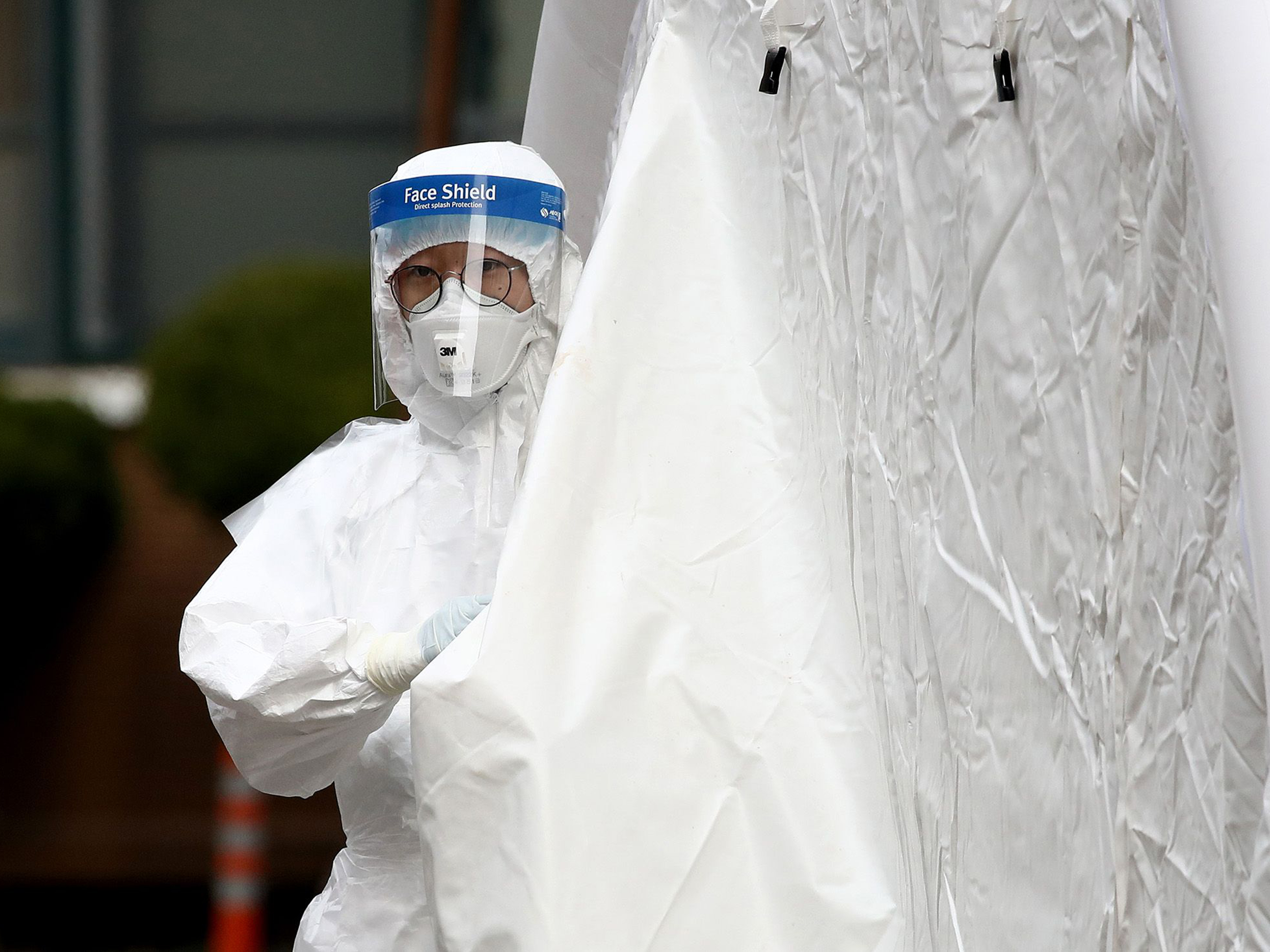
Visit Our Sponsors |
|
|
|
|
|
|
|
|
|
|
|
|
|
|
|
|
|
|
|
|
|
|
|
|
|
|
|
|
|
|
|
|
|
|
|
|
|
|
|
|

The official line coming out of Covid-hit Shanghai is that business is returning to usual despite the ongoing lockdown, yet hundreds of manufacturers in the city aren’t operating at anywhere near to full capacity, if they’re up and running again at all.
While factories have been given special allowances to reopen under strict guidelines and systems, snarls in the supply chain — from a shortage of delivery drivers to a lack of materials — continue to disrupt local operators and global giants including Tesla Inc. and Sony Group Corp. And despite a decline in virus cases, the lockdown is intensifying as officials chase the elusive goal of wiping out Covid in the community.
“Restrictions on transport of people and goods remain a serious problem,” said Louis Kuijs, Asia Pacific chief economist at S&P Global Ratings. “Much more needs to happen before we can start talking about a return to normality.”
Under pressure from President Xi Jinping to insulate the economy from pandemic disruptions, the Shanghai government is painting a rosier picture, saying over 70% of 1,800 industrial companies had resumed production as of May 4. Within that number there are about 660 so-called key industrial firms, and more than 90% of those have restarted work, according to the authorities.
But manufacturers are far from firing on all cylinders. In a Shanghai Securities News survey of 667 companies, about half had resumed less than 30% of production as of May 7. The biggest challenges they face are disrupted supply chains and restrictions on staff movement, the newspaper said.
Another survey this month by the Shanghai Japanese Commerce and Industry Club found that almost two-thirds of Japanese-run factories in the financial and manufacturing center hadn’t resumed any production. None of the 54 companies surveyed had returned to planned levels of output.
Many German firms are also finding it hard to get government permission to restart, according to Maximilian Butek, executive director of the German Chamber of Commerce in Shanghai.
Closed Loop
China has touted “closed loops,” where workers are regularly tested and shuttled between factories and accommodation on-site or nearby, as a way to keep the economy running amid Covid Zero’s punishing diktats. But companies trying to operate these loops are facing issues from infections spreading among workers to lack of accommodation and social unrest.
Tensions flared last week at a facility that makes devices for Apple Inc., as workers rushed through barriers and clashed with guards trying to keep them inside, a video shared on Twitter and YouTube shows. The plant, owned by Taiwan’s Quanta Computer Inc., has been operating in a closed loop since the start of April.
3M Co., a Minnesota-based manufacturer of face masks, electronic components and other medical and industrial materials, found it hard to book hotels to accommodate workers returning to plants in Shanghai, the company’s China President Hongyu Ding said at a press briefing late last month.
Tesla shuttered its Shanghai plant for three weeks because of the lockdown in the city of about 25 million people. The factory, which typically would make around 2,100 cars a day, shipped only 1,512 vehicles out of Shanghai last month due to the impact on operations. Continuing logistics challenges may force production to cease again entirely later this week, a person familiar with the matter said, declining to be identified because the details are private.
While officials are eager to reassure that businesses are returning to normal, government data show manufacturing and services activity plunging to their worst levels since the pandemic began.
Even after securing permits to resume production, companies are struggling to get raw materials and parts due to difficulties in obtaining approvals to transport goods across provinces. Many truck drivers are also stuck in quarantine.
Sony Group Corp. this week cut its PlayStation 5 sales forecast to about 18 million units this fiscal year from a previous estimate of 22.6 million units, citing supply chain complications due to the pandemic, including lockdowns in China. Nintendo Co. also said there had been some impact on sales because of the situation in Shanghai.
Supply chain disruptions stemming from Chinese lockdowns have hit manufacturing in other countries. Toyota Motor Corp. said Tuesday it would suspend some production lines in Japan and lowered its global output plan for the month to 700,000 vehicles from 750,000 due to the lockdown in Shanghai. Mazda Motor Corp. suspended work at two factories in Japan twice last month due to a shortage of parts from China.
Cooper-Standard Holdings Inc., a Michigan-based manufacturer of car parts, had virtually no production at its Shanghai factories in April and its customers’ plants were also down, Chief Executive Officer Jeffrey Edwards said in an earnings call last week.
“It’s far from over, in terms of getting back up to production levels in China that are normal,” Edwards said. “They had a great first quarter of it. With everything that’s happened now, that’s all out the window.”
RELATED CONTENT
RELATED VIDEOS
Timely, incisive articles delivered directly to your inbox.






